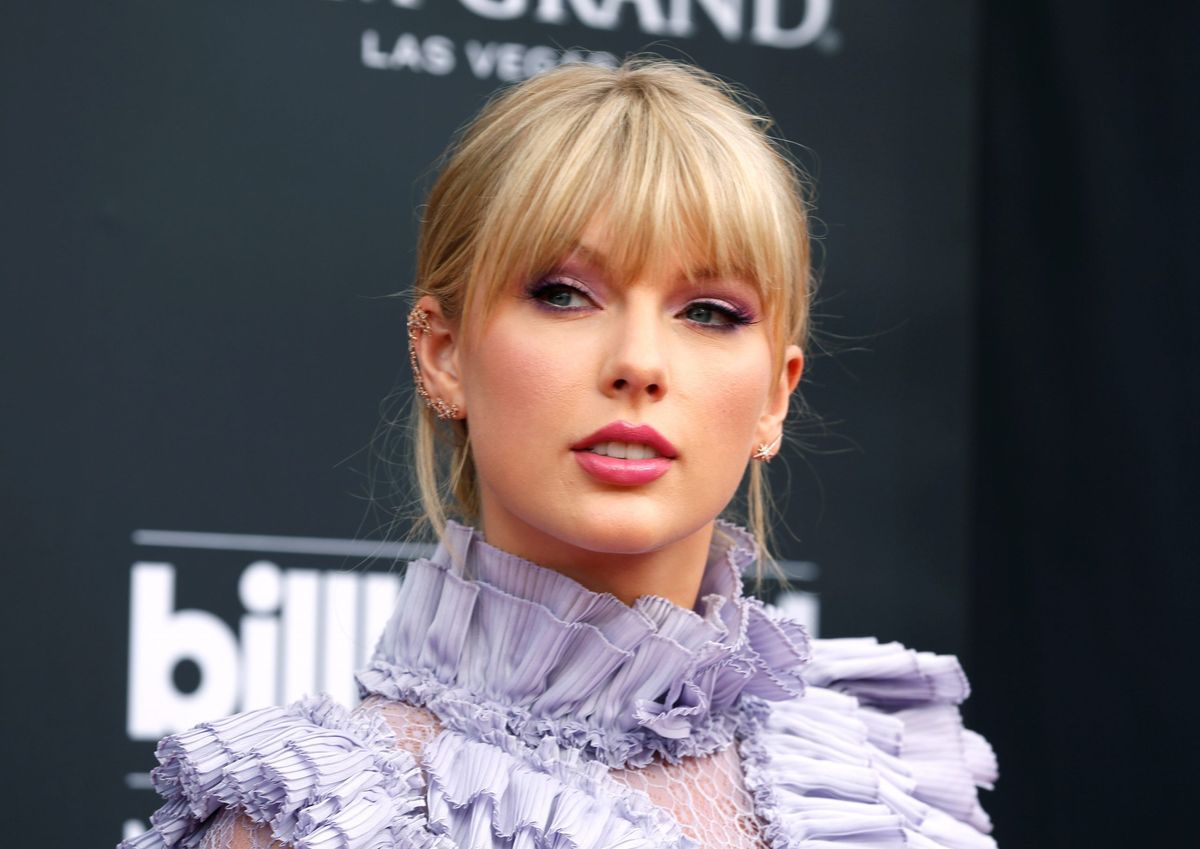This is why Taylor Swift is rerecording her first six albums

A few minutes every morning is all you need.
Stay up to date on the world's Headlines and Human Stories. It's fun, it's factual, it's fluff-free.
It’s part of a larger campaign by the country and pop star to own her own music and reclaim her musical catalog from figures in the music industry with whom she has had a very public feud in recent years.
When Taylor Swift appeared on Good Morning America on Thursday, February 11, it was to announce the release of a rerecorded version of one of her biggest early hits, “Love Story.” Alongside her release of the new version of the song, Swift also announced the imminent release of the entirely rerecorded “Fearless” album, the album on which “Love Story” originally appeared.
Though musical artists rerecord their songs all the time, the release of “Love Story (Taylor’s Version)” (as the new recording is titled) was not simply an attempt to increase sales but is instead part of a larger campaign by the country and pop star to own her own music and reclaim her musical catalog from figures in the music industry with whom she has had a very public feud in recent years.
Swift has vowed to rerecord all six of her first albums: her self-titled debut (originally released in 2006), “Fearless” (2008), “Speak Now” (2010), “Red” (2012), “1989” (2014) and “Reputation” (2017). Though it is a personal effort for Swift, her mission to own the rights to her own music is also related to a larger fight within the music industry over ownership that artists have been waging for decades.
The selling of Taylor Swift’s musical legacy
Swift is one of the most popular and successful singer/songwriters in the world. She has received 10 Grammy Awards (with multiple nominations this year) and has sold 46 million albums in the United States alone, making Swift one of the top 40 bestselling musical artists of all time. Additionally, Swift has been quite prolific in 2020, releasing two albums of new material (“Folklore” and “Evermore”).
It may then seem odd that Swift would invest so much time rerecording six full albums, especially considering the evolution of her sound and style since her debut as a country pop singer at 16 years old. The newly recorded “Love Story” doesn’t dramatically rework the song, so it doesn’t appear to be a desire to re-imagine her early work from a more musically mature perspective.
Instead, the effort relates to her feud with Scooter Braun, a music producer and manager, and Scott Borchetta, the founder of Big Machine Label Group, Swift’s former music label. Swift left Big Machine in 2018 and signed with Universal Music Group (UMP). She has released her three most recent albums through Republic Records, a subsidiary of UMP.
In 2019, Borchetta sold the rights to Swift’s catalog of albums to Braun, a deal that angered Swift, both because she did not approve of the sale of her music and because she had bad blood with Braun.
Borchetta said he had offered to sell the catalog to Swift, but that she declined. Swift contends that his offer only would have allowed her to “earn” her albums back one at a time, after re-signing with Big Machine.
Braun, who counts Ariana Grande and Justin Bieber among his clients, has frequently worked with the rapper Kanye West.
Swift and West have had a long and well-documented antagonistic relationship for years, of which she says Braun played a part. The antagonism started in 2009 when Swift won an award at the MTV Video Music Awards. West upstaged her shining moment by rushing the stage, grabbing the microphone from her and proclaiming, Beyoncé, who had also been nominated, “had one of the best videos of all time.”
In a 2019 Tumblr post in which she expressed her displeasure with the selling of her catalog, Swift said Braun had subjected her to “incessant, manipulative bullying … for years.” She added, “my musical legacy is about to lie in the hands of someone who tried to dismantle it.”
While Swift said she knew Borchetta would eventually sell her masters (i.e., master recordings, or the original recordings from which all copies are made), she stated that she believed the sale to Braun was specifically about hurting and controlling her:
“Never in my worst nightmares did I imagine the buyer would be Scooter. Any time Scott Borchetta has heard the words ‘Scooter Braun’ escape my lips, it was when I was either crying or trying not to. He knew what he was doing; they both did. Controlling a woman who didn’t want to be associated with them. In perpetuity. That means forever.”
In signing her current deal with UMG in 2018, Swift made it a stipulation of her contract that she owns her master recordings. That means she not only owns the music as a songwriter, but she controls how her music is used. For instance, Swift decides if her music can be sampled by other artists or if it will appear in movies or TV shows.
Why rerecord albums?
As a 2013 Slate piece explained, artists rerecording their own songs and albums has a long history within the music industry. Frank Sinatra has done it, as have Chuck Berry, ZZ Top, Def Leppard and countless other acts. The most common reason for doing so, historically, has been ensuring that the artists get a bigger financial cut when their music is used, for instance, in soundtracks or advertisements.
This was especially necessary for artists from the 1950s and 60s who didn’t even consider that their music would be used in movies and TV shows when they initially signed their contracts. Even since that practice became commonplace, though, many musicians fail to get the rights to their masters because they didn’t have the negotiating power (or know-how) to demand it when first signing.
By rerecording their music (often after a contract-specified period of time), the artists own those recordings and get to skip the middleman of their labels to sell their music rights directly.
In Swift’s case, her initial decision to rerecord her albums seemed less about securing better paydays and more about ensuring Braun didn’t profit off her work. That appeared to be her motivation when she initially discussed the possibility of rerecording her albums in a CBS interview in August 2019.
In November of last year, Braun sold the rights to Swift’s catalog to a private equity firm, Shamrock Holdings, for US$300 million. According to Swift, she had not been made aware of the deal before it occurred.
The sale apparently did not change her mind to rerecord her past catalog. In her Instagram announcement of her release of the rerecorded Fearless, a coded message revealed the album will be coming out on April 9, 2021. Swift has not said when she expects to record or release the other five albums.
The Beatles’ master recordings
Owning the rights to one’s own music has long been a touchy issue in the music industry. One of the most infamous examples is from the 1980s, when pop star Michael Jackson paid US$47.5 million to own the catalog of music publishing company Sony/ATV. In that catalog was over 250 Beatles songs.
In 1985, at the time of Jackson’s purchase, he and former Beatle Paul McCartney had struck up a friendship and recorded two songs together: 1982’s “The Girl Is Mine,” and 1983’s “Say Say Say.” McCartney, who had lost the rights to the Beatles songs in the 1960s, had discussed with Jackson the value of owning the publishing rights to one’s own music.
Later, when the Sony catalog was up for sale, Jackson outbid McCartney for the rights to the Beatles’ songs. It created a rift between the two music superstars that lasted until Jackson’s death in 2009, even after Jackson had resold the song rights back to Sony/ATV.
In 2017, McCartney and Sony/ATV reached a settlement in which the Liverpool rock star regained partial ownership of the Beatles’ catalog.
Have a tip or story? Get in touch with our reporters at tips@themilsource.com




Comments ()